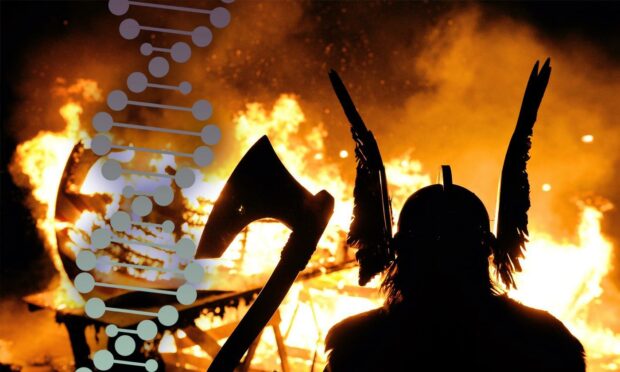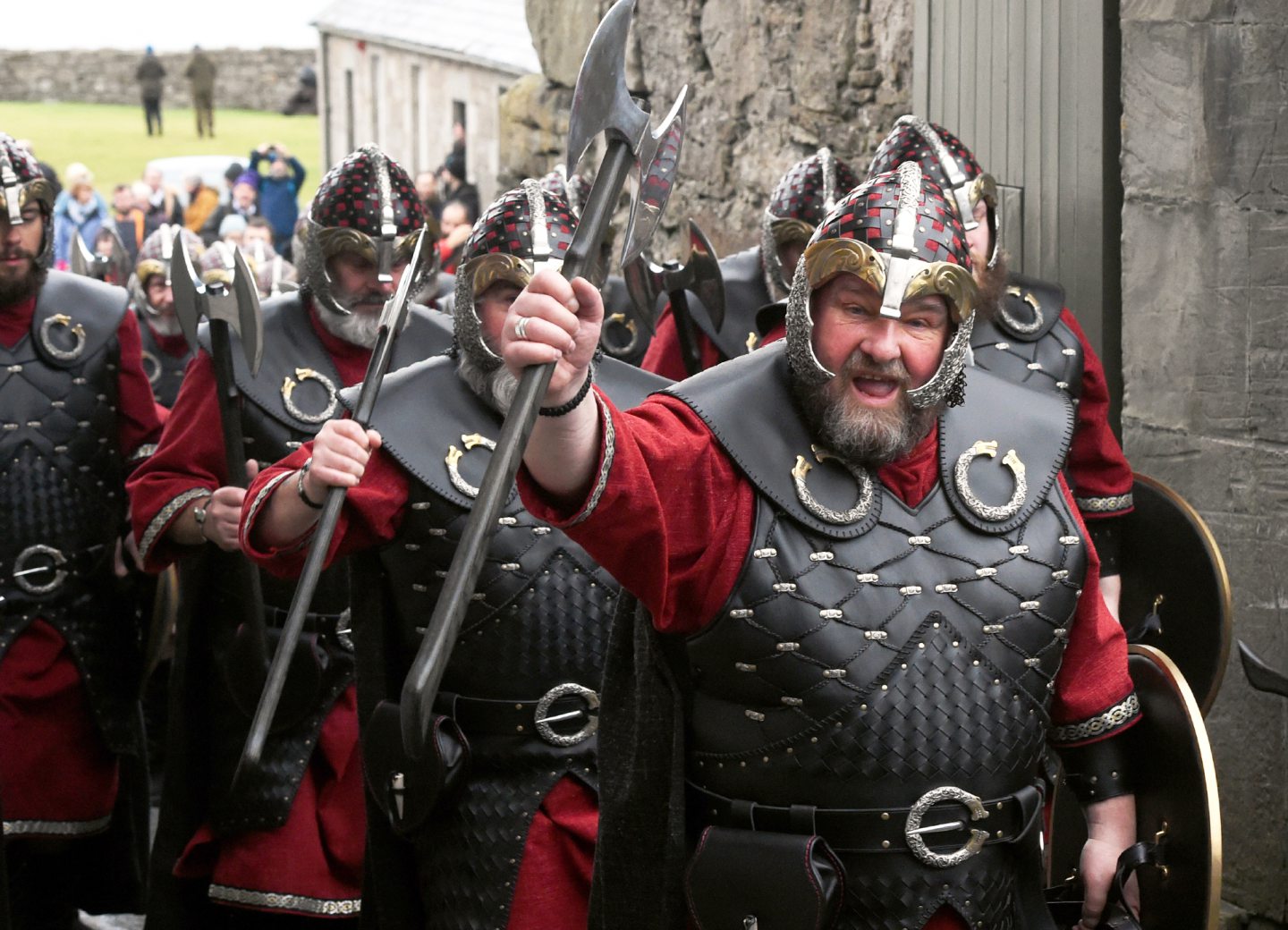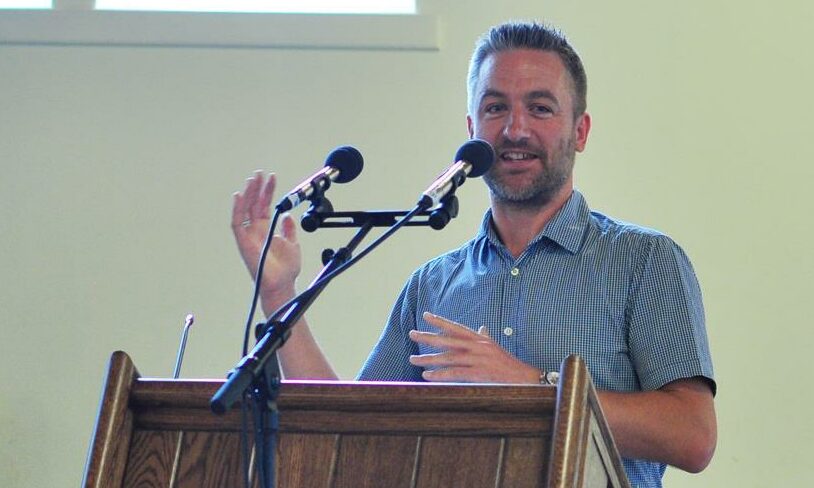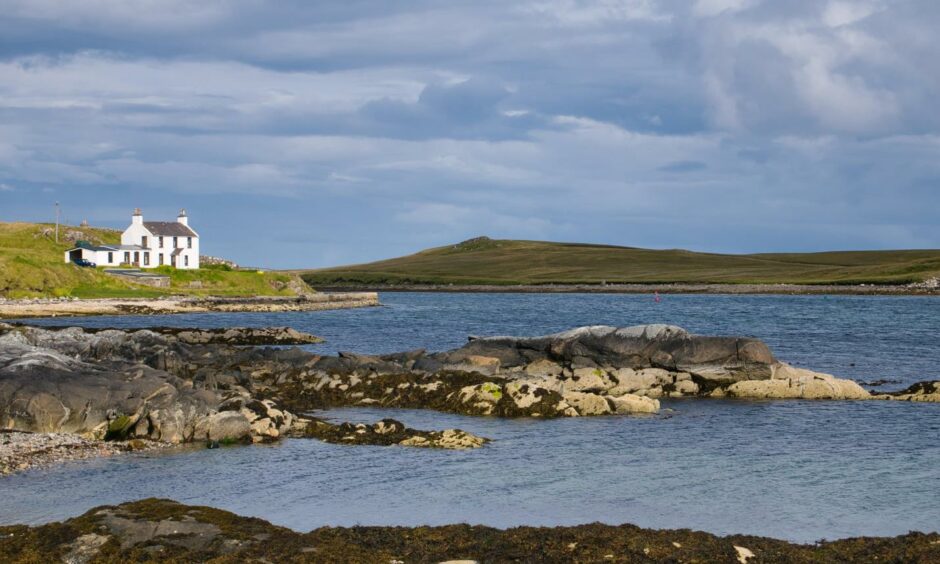After centuries of “geographic isolation,” Shetland has developed the most unique gene pool in the UK.
And researchers are now studying it closely, hoping to uncover health secrets that could one day save lives.
Genealogists at Edinburgh University have been collecting DNA from the saliva samples of thousands of people of Shetland or Orcadian descent.
Their latest study, Viking II, is just 300 volunteers short of meeting its 4,000 target.
While most other disease research can be affected by the variety of occupations and lifestyles, the small gene pool makes it easier to avoid outside influences.
Its chief investigator, Professor Jim Wilson, is aware of these differences personally as he grew up in Orkney with Fair Isle heritage, as his father comes from the remote Shetland island.
‘Nobody else has these genetic variants’
He explained: “We’ve been able to show that about 10% of the genetic variants we see in Shetland aren’t seen anywhere else.
“They’re really interesting because nobody else has them and nobody else can study them.
“It’s very clear that Shetland and Orkney have the most different gene pools of anywhere in the British isles.”
He hopes studying these genes will uncover possible risks associated with certain medical conditions and diseases, and make them easier to treat.
Prof Wilson said: “I’m really interested to see if they are increasing the risk of common diseases like strokes, diabetes, heart disease or the rarer conditions many folk haven’t heard of.”
During the study, the team came across one family with the markers of Long QT syndrome, a potentially fatal condition affecting the rhythm of the heart.
“We found a separate family who had no idea they carried this gene, one of them lives somewhere in Aberdeenshire,” Prof Wilson said.
“We were able to show they had this and they should get advice from their doctor and get checked out so they don’t end up dying. It can be deadly, your heart just stops.”
Why are Shetlanders’ genes different?
Prof Wilson believes the main factors behind this uniqueness come from increased levels of Scandinavian heritage and the majority of people having children with other Shetlanders.
“I think there are two reasons why,” he said.
“One being people in Shetland and Orkney have a bit more Scandinavian than other people do.
“The highest Scandinavian percentage is in (the Shetland island) Yell, with around 24% Norwegian. In other places it’s a bit lower, but generally in the teens or up to 20%.
“The second thing is geographic isolation. People from Shetland have tended to marry people from Shetland for centuries and centuries, and same with people from Orkney.
“Because they kept marrying within the gene pool, over time it began to slowly change and become distinct from the main Scottish gene pool,” he explained.
Shetland genes across the world
Anyone who has at least two grandparents from Shetland and Orkney are being invited to take part in the study.
More than 300 volunteers live in the north-east of Scotland, but others have signed up from mainland Europe, South Africa, Australia and even Hawaii.
Prof Wilson added: “Each of them has at least two grandparents from the Northern Isles
“It’s nice for people to realise there’s folk all over the world from Orkney and Shetland who still have the genes.
“This is why I’m interested in them and why we’re grateful to have them to study.”
Read more:
Faulty genes linked to prostate and pancreatic cancers, study suggests
Hollywood’s Brian Cox helps launch largest digital collection of Scottish family history
New programme highlights remarkable story of female Viking explorer with Scottish links



